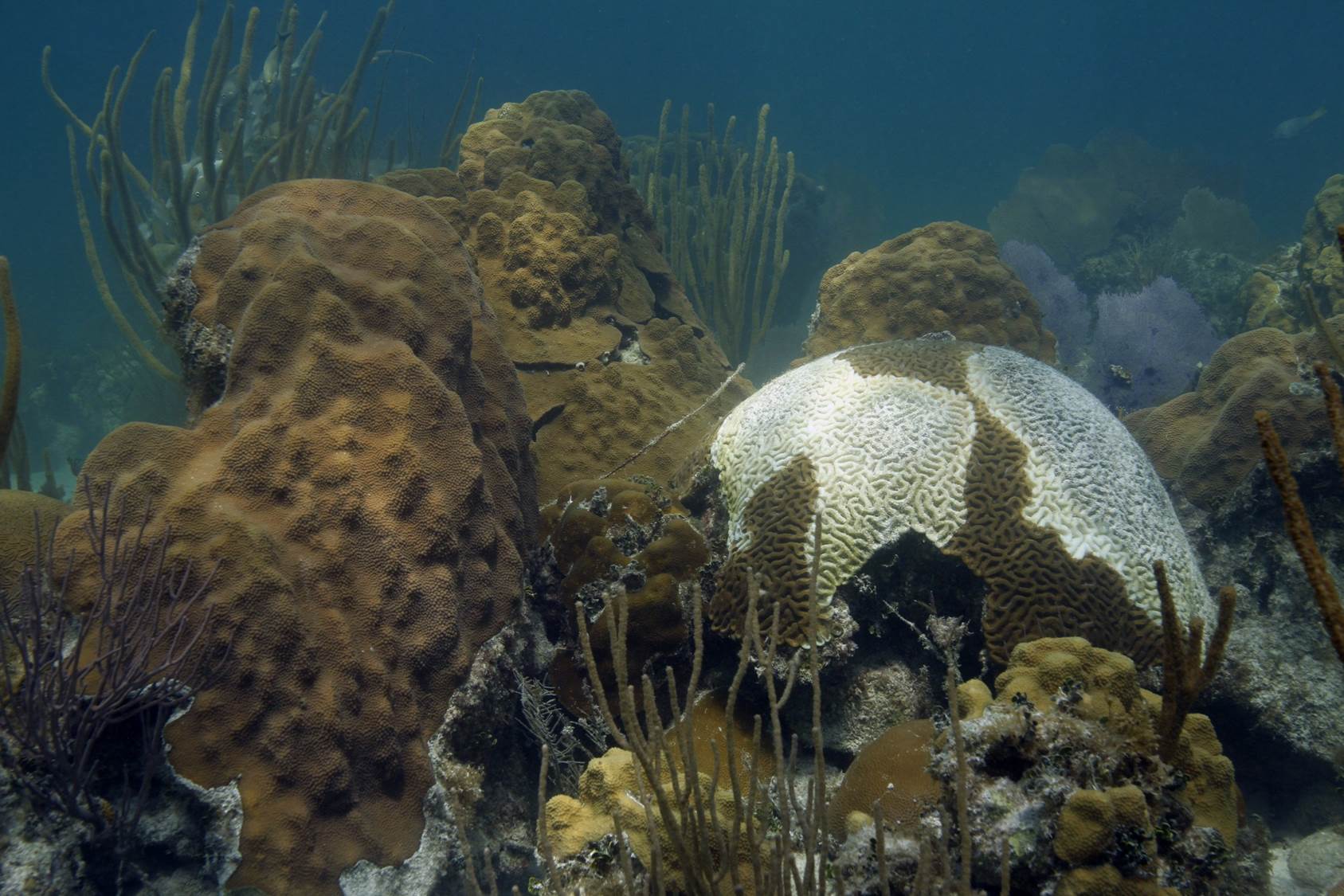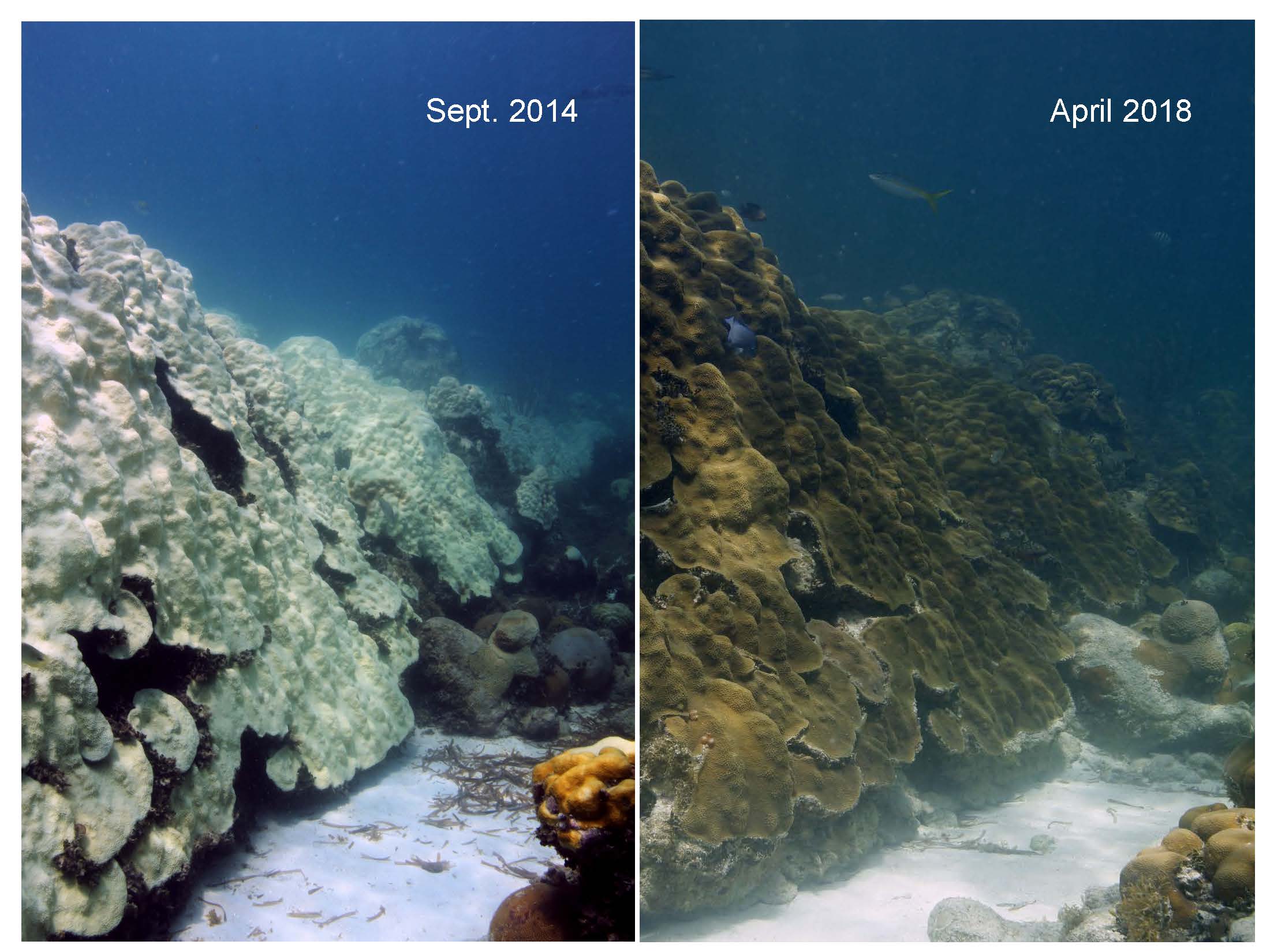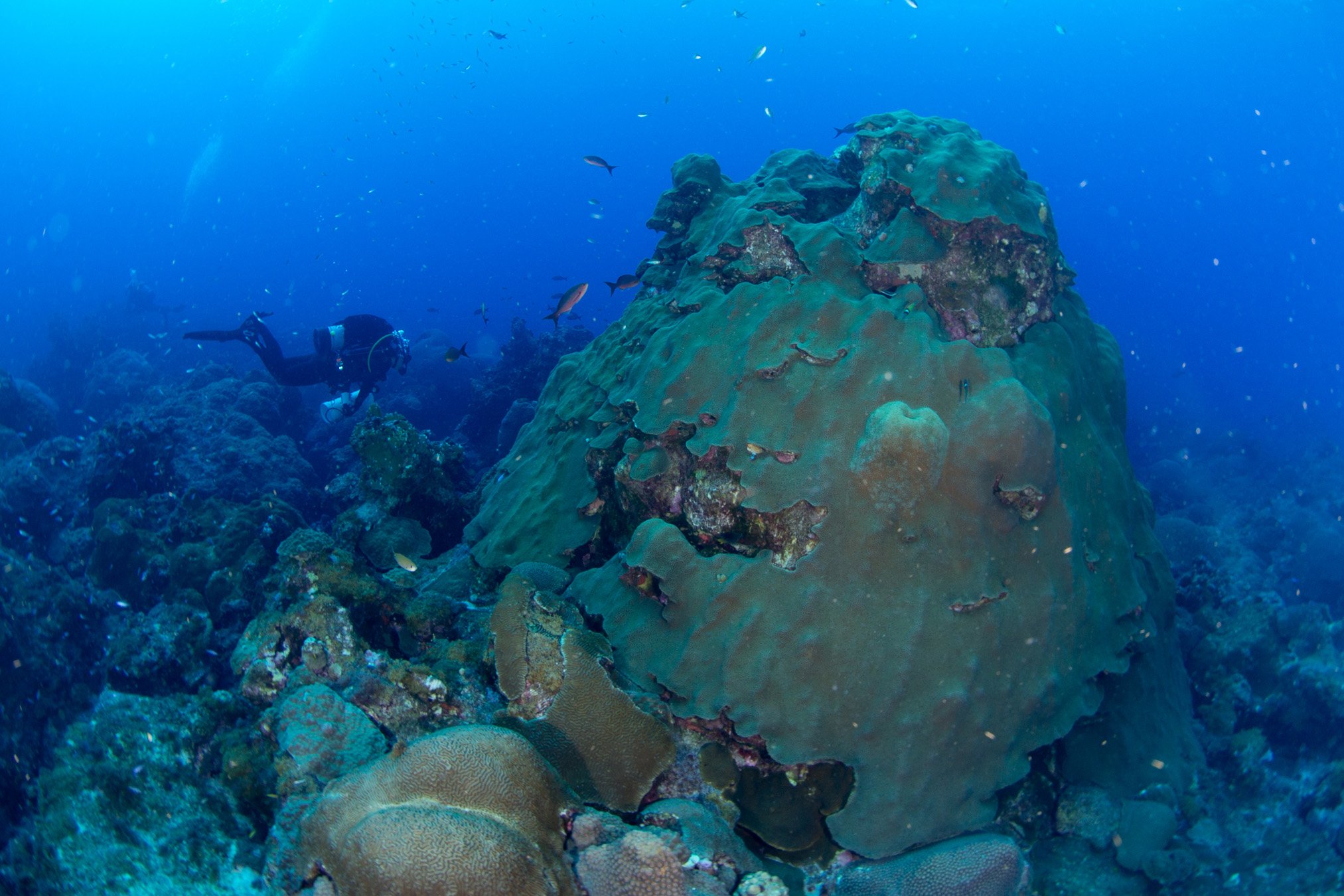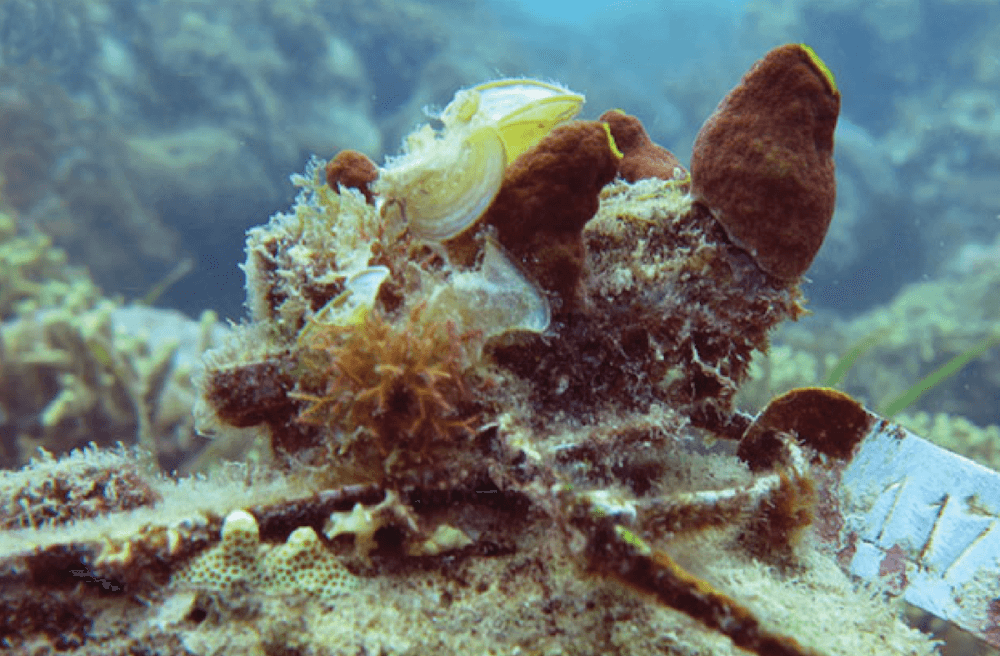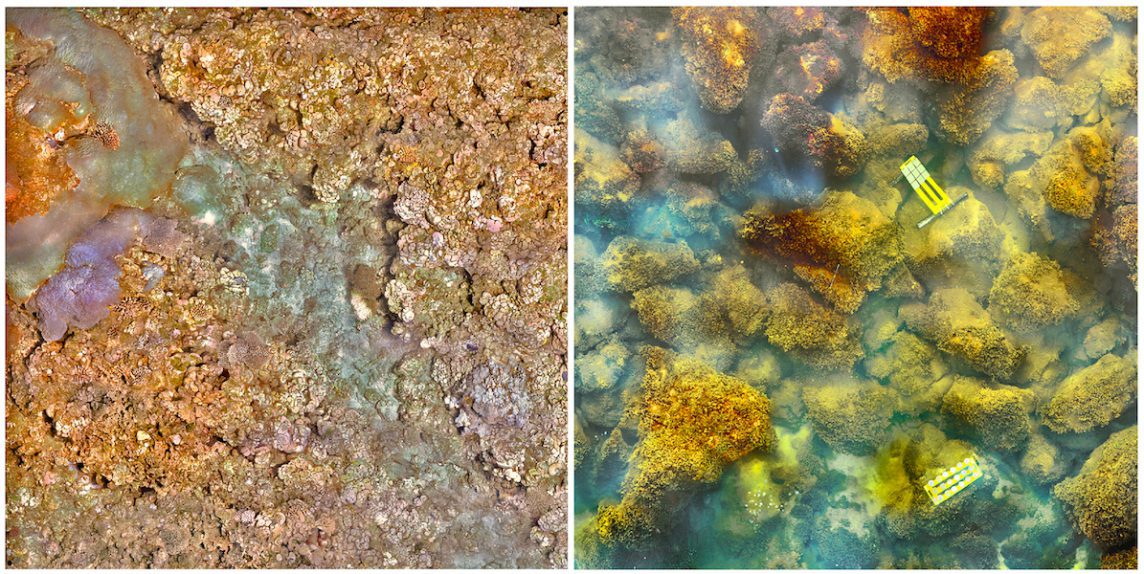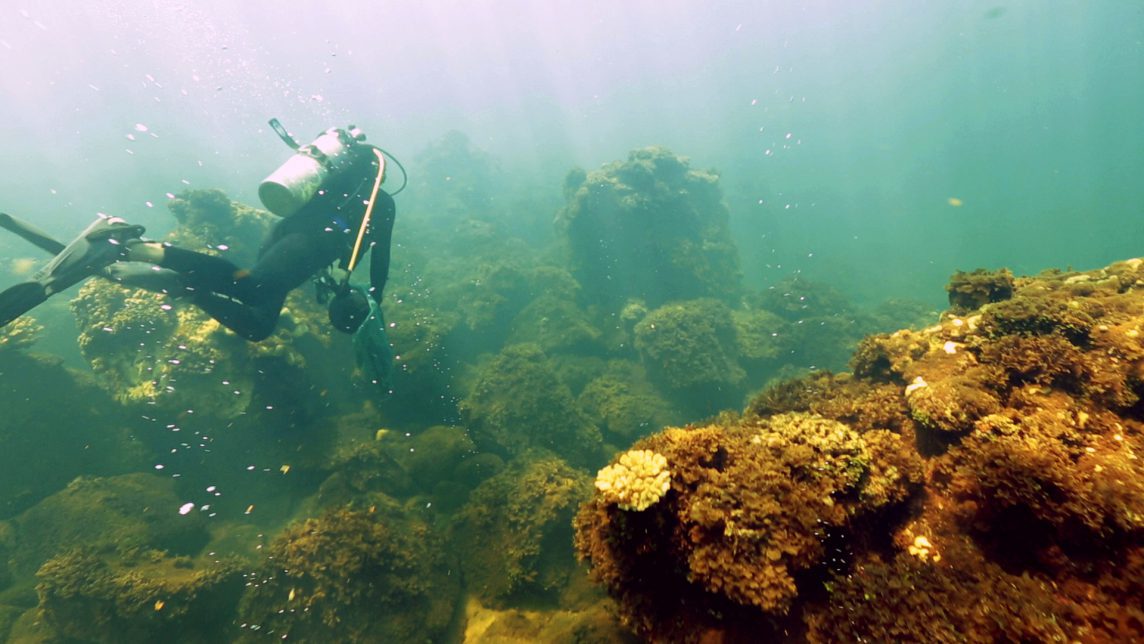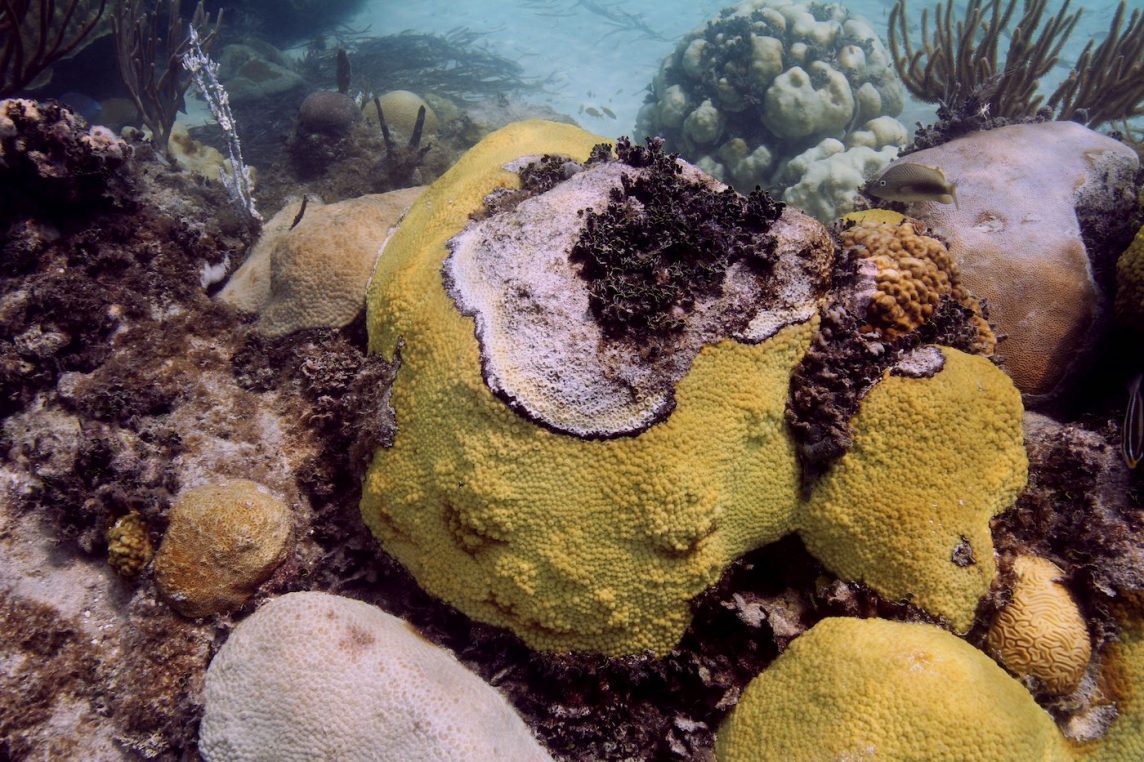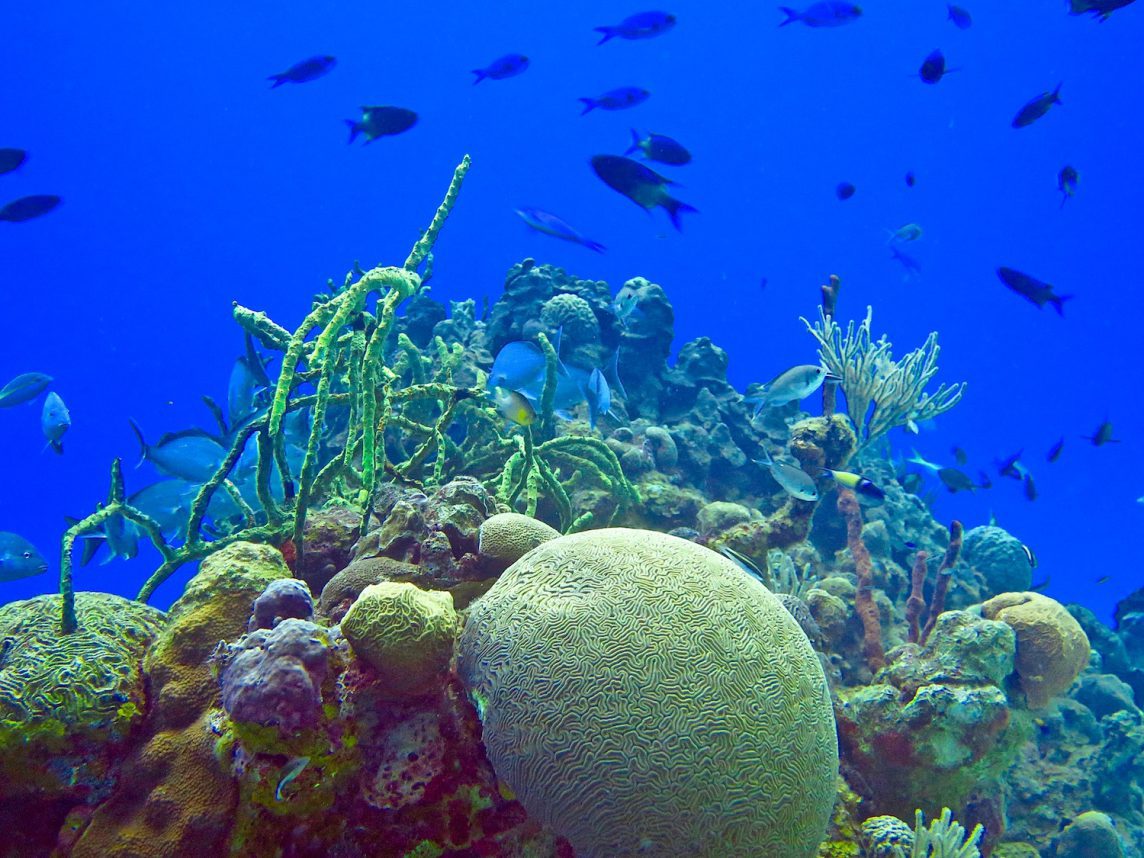NOAA and partners have launched a new buoy in Fagatele Bay within NOAA’s National Marine Sanctuary of American Samoa to measure the amount of carbon dioxide in the waters around a vibrant tropical coral reef ecosystem. “This new monitoring effort in a remote area of the Pacific Ocean will not only advance our understanding of changing ocean chemistry in this valuable and vibrant coral ecosystem but will also help us communicate these changes to diverse stakeholders in the Pacific Islands and across the United States,” said Derek Manzello, coral ecologist with NOAA’s Atlantic Oceanographic and Meteorological Laboratory.
Coral Reefs will be Unable to Keep Pace with Sea-Level Rise
NOAA contributed to a study published today in the journal Nature that compares the upward growth rates of coral reefs with predicted rates of sea-level rise and found many reefs would be submerged in water so deep it will hamper their growth and survival. The study was done by an international team of scientists led by the University of Exeter in the United Kingdom.
Coral Bleaching Study Offers Clues about the Future of the Florida Keys Reef Ecosystem
A recent study by AOML and partners identified coral communities at Cheeca Rocks in the Florida Keys National Marine Sanctuary that appear to be more resilient than other nearby reefs to coral bleaching after back to back record breaking hot summers in 2014 and 2015 and increasingly warmer waters. This local case study provides a small, tempered degree of optimism that some Caribbean coral communities may be able to acclimate to warming waters.
Threatened Corals See Effects of Sedimentation Stress in Early Life Stages
Coral scientists at NOAA’s Atlantic Oceanic and Meteorological Laboratory (AOML) are in the process of analyzing data that may shed light on the sub-lethal effects of sedimentation stress in coral larvae. Scientists recently conducted a series of lab experiments aimed at assessing the effects of Port of Miami dredge sediments on the larval performance of the Caribbean threatened coral Orbicella faveolata (also known as the mountainous star coral). Preliminary analysis suggests significant effects of sedimentation on both the survival and settlement of coral larvae.
CHAMP Researchers at AOML to Install New Coral Monitoring Stations in the Caribbean
Coral Health and Monitoring Program (CHAMP) researchers at AOML have worked cooperatively with the Caribbean Community Climate Change Centre (CCCCC), headquartered in Belize, over the past several years to install Coral Reef Early Warning System (CREWS) stations at key coral reef sites in countries throughout the Caribbean. CREWS stations monitor an array of atmospheric and oceanographic parameters to assess the health and integrity of coral reefs. The stations are part of the CCCCC’s efforts to strengthen the Caribbean region’s ability to respond to climate variability, extreme weather conditions, pollution, and habitat change.
Study shows ocean acidification is two-front assault on coral reefs
The study, published in the Proceedings of the Royal Society B, measured changes in the reef framework in several naturally high-carbon dioxide settings near Papua New Guinea. For the first time, scientists found increased activity of worms and other organisms that bore into the reef structure, resulting in a net loss of the framework that is the foundation of coral reef ecosystems.
Volcano Spewing Carbon Dioxide Drives Coral to Give Way to Algae
The new research published online August 10 in Nature Climate Change provides a stark look into the future of ocean acidification – the absorption by the global oceans of increasing amounts of human-caused carbon dioxide emissions. Scientists predict that elevated carbon dioxide absorbed by the global oceans will drive similar ecosystem shifts, making it difficult for coral to build skeletons and easier for other plants and animals to erode them.
Increased Erosion at Acidified Coral Reefs
Corals live and thrive by maintaining a careful balance between their growth rate and the rate of erosion. Scientists already know the projected increases in carbon dioxide in our global oceans, known as ocean acidification, will slow the rate at which corals build the hard calcium carbonate skeletons that are the foundation of their habitat. A new study published online today in PLOS ONE demonstrates that in naturally highly acidified waters, these coral skeletons will also face increased erosion from microscopic organisms, called bioerosion. The result is accelerated breakdown and loss of reef structures, and potentially the loss of essential habitat.
NOAA Research on Microbial Communities Contributes to National Microbiome Initiative
On May 13th, the White House Office of Science and Technology Policy introduced the National Microbiome Initiative, an effort to support multi-agency research to help sample and better understand communities of microorganisms that are critical to both human health and the world’s ecosystems. As the nation’s premier ocean science agency, NOAA is leading interdisciplinary research to improve observation and assessment of marine microbiomes. To support this national initiative, NOAA’s Atlantic Oceanographic and Meteorological Laboratory (AOML) received nearly $2 million in funding this year to conduct a number of projects that integrate genetic sampling techniques and technologies to help advance the understanding of the ocean’s microbiomes.
NOAA and Cuba Open Doors to Marine Science Cooperation
When Barack Obama becomes the first president to visit Cuba since Calvin Coolidge, his visit will highlight not only a new course in international relations, but showcase on-going scientific opportunities with the country only 90 miles off the Florida coast.

